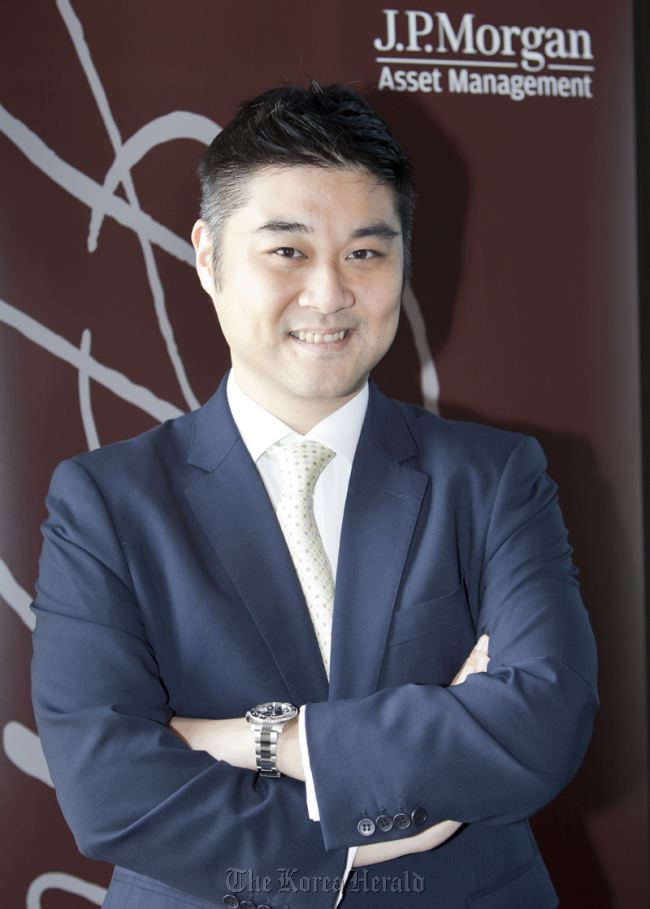Korea has a number of factors to mitigate the current won-yen exchange rates that daunt Korean exporters, said Tai Hui, chief Asia market strategist at JPMorgan Asset Management.
Mounting concerns over the weakening yen have led to a cautious outlook by Korean companies. However, Hui concluded that the global economic conditions are looking favorable for the Korean economy, as well as the country’s asset market for the rest of 2013.
“For investors in Korea, the market may still come under pressure in the near term as the yen is depreciating, but we still have a favorable outlook on the Korean market for the whole 2013,” Hui said at a news conference on the 2013 market outlook in Seoul last week.
“In the past few weeks, the Korean market has been negatively impacted by the weakening of the yen,” he said. “But the yen-won exchange rate is only one of many factors that drive the export performance.”
 |
Tai Hui |
The global growth environment ― especially in China, Korea’s largest trade partner ― will be a much more important driver when it comes to determining Korea’s exports as well as economic growth in 2013, the chief Asia market strategist said.
Hui predicted that as China and other emerging markets recover from the global economic downturn, demand for Korean products ― such as consumer electronics, steel and heavy machinery ― will gradually turn around.
The JPMorgan market strategist pointed out that in China, investors are starting to see more evidence of economic recovery and growth, largely driven by private consumption as well as fixed-asset investment.
Another positive driver for Korea’s export performance and 2013 market outlook is the diversification strategy of Korean companies and producers, which spread their production bases abroad, Hui noted.
“(Korean manufacturers) diversified their production base so that they are no longer producing solely in South Korea, but also in China, in Asia, even in the U.S. So again, that helps to mitigate some of the foreign exchange risks,” Hui said.
In the same context, the market strategist recommended that investors diversify their portfolio to different countries.
“I understand there’s a major concentration risk not just in Korea but in Asia, where investors invest in the home market,” he said. “But because of the market volatility and domestic factors, it is worth seriously considering how to diversify your assets outside of your home country.”
Hui also stressed that another positive influence for Korea’s 2013 outlook is its advantage in valuation compared to other Asian countries.
“Also if you look at valuation, I think the Korean market is still very much below their 10-year average in both price to earnings or price to book. That has been an attraction for investors as all the markets in Asia have picked up (and become) slightly more expensive.“
Furthermore, Hui saw high-quality products of Korean manufacturers as another factor to mitigate the struggle against the weak yen.
“In the past several years, Korean products, in terms of innovation and creativity, have actually become incredibly competitive. I think that will help companies to mitigate against the disadvantage from exchange rates.”
Hui concluded that 2013 will have stronger growth and reduced tail risks. “Combined with relatively attractive valuation, this year is a year where the expected gains of equity holding investors should be increased.”
By Chung Joo-won (
joowonc@heraldcorp.com)








